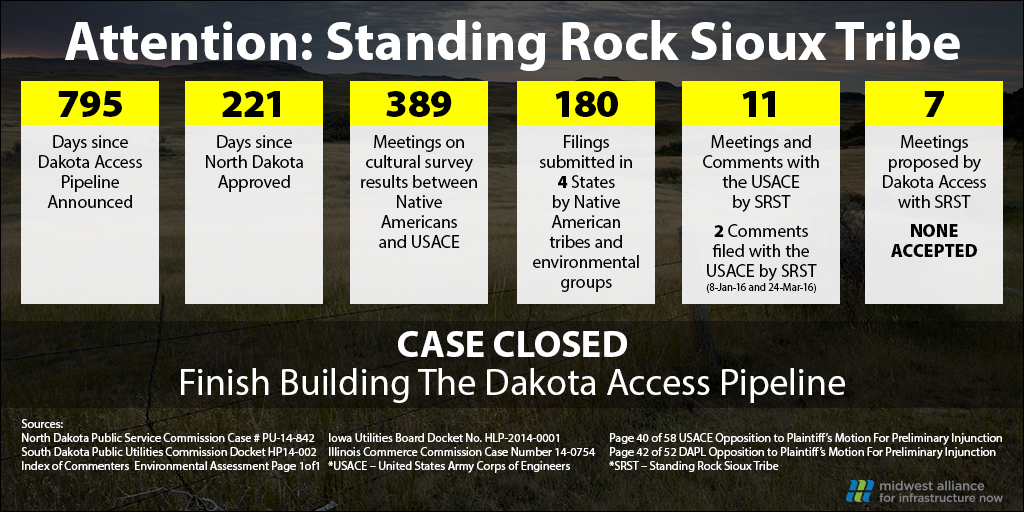The Center for Individual Freedom (CFIF) has sent a number of Freedom of Information Act (FOIA) requests seeking information on communications with Jodi Gillette regarding the Dakota Access Pipeline. Gillette, a former advisor to President Obama and the sister of the David Archambault, the chairman of the Standing Rock Sioux Tribe, has played a leading role in the misguided efforts to derail the multibillion dollar pipeline project.
In a statement, Timothy Lee, CFIF’s Senior Vice President of Legal and Public Affairs, expressed concern about the lack of transparency and potential conflicts of interests related to the Army Corps’ decision to indefinitely delay a federal easement for the pipeline.
“There have been a lot of rumors about the backroom dealings that led to the Administration’s decision to not issue the final easement for the Dakota Access Pipeline,” Lee said. “We would hope that the self-purported ‘most transparent Administration in history’ would provide the American people with the background and information that went into this important decision to halt an infrastructure project that had already been approved and was more than 90 percent complete.”
The requests, which were sent to the Departments of Interior, Justice and Energy, as well as the Bureau of Indian Affairs and the Army Corps of Engineers, outline CFIF’s concerns about improper influence over the Obama administration’s actions:
There is growing concern about the relationship between Dave Archambault II’s sister, Jodi Gillette, and the Obama Administration. Mr. Archambault is the chairman of the Standing Rock Sioux Tribe (SRST) and a critic of the project. Ms. Gillette is a former senior advisor to the President and Secretary of the Interior, and is currently a lobbyist on behalf of the Standing Rock Sioux with Sonosky, Chambers, Chambers, Endreson & Perry, LLP. We seek to ensure that Mr. Archambault and Ms. Gillette haven’t wielded improper influence over the Administration’s policies that have resulted in delays in the completion of the Dakota Access Pipeline project.
I request access to and copies of all records since February 1, 2016, related in any way to the Dakota Access Pipeline (DAPL) and Jodi Gillette. This request includes, but is not limited to, all emails, other correspondence, correspondence logs, records of meetings, records of appointments and visitor logs.
CFIF is currently reviewing other potential FOIA requests on the matter.




